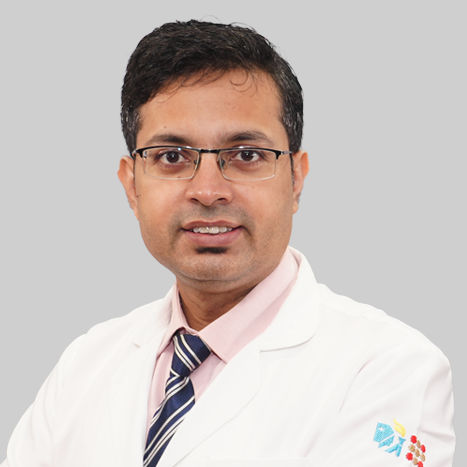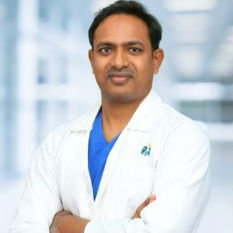Hypogonadism: Symptoms, Treatments, Causes, and Types
Know about hypogonadism, what it is, symptoms, causes, diagnosis, prevention and treatment options.

Written by Dr. Rohinipriyanka Pondugula
Reviewed by Dr. Dhankecha Mayank Dineshbhai MBBS
Last updated on 13th Jan, 2026

Introduction
Hypogonadism is a condition where the body doesn’t produce enough sex hormones, primarily testosterone in men and estrogen in women. These hormones play a crucial role in reproductive health, muscle strength, bone density, and overall well-being. If left untreated, hypogonadism can lead to complications like infertility, osteoporosis, and mood disorders.
In this article, we’ll break down hypogonadism in simple terms—what causes it, the symptoms to watch for, and how it can be managed effectively.
What is Hypogonadism?
Hypogonadism occurs when the testes (in men) or ovaries (in women) don’t produce sufficient sex hormones. This can happen due to problems in the gonads (primary hypogonadism) or issues with the brain’s signalling system (secondary hypogonadism).
Consult a Urologist for Personalised Advice
Types of Hypogonadism
1. Primary Hypogonadism (Hypergonadotropic Hypogonadism)
- The problem lies in the gonads (testes or ovaries).
- Common causes: genetic disorders (like Klinefelter syndrome in men or Turner syndrome in women), infections, chemotherapy, or injury.
2. Secondary Hypogonadism (Hypogonadotropic Hypogonadism)
- The issue is in the brain (pituitary gland or hypothalamus), which fails to signal hormone production.
- Common causes: obesity, stress, pituitary tumours, or chronic illnesses like diabetes.
3. Late-Onset Hypogonadism (Age-Related Low Testosterone in Men)
- A gradual decline in testosterone levels due to ageing.
Symptoms of Hypogonadism
The symptoms vary between men and women and depend on when the condition develops (before or after puberty).
In Men:
- Low sex drive (libido)
- Erectile dysfunction
- Fatigue and low energy
- Reduced muscle mass
- Increased body fat
- Mood swings, depression, or irritability
- Decreased facial/body hair
- Infertility
- Osteoporosis (weak bones)
In Women:
- Irregular or absent periods
- Low libido
- Hot flashes
- Vaginal dryness
- Mood changes
- Difficulty conceiving
- Loss of breast tissue
- Weak bones (osteoporosis)
In Children (if hypogonadism occurs before puberty):
- Delayed puberty
- Lack of development of secondary sexual characteristics (facial hair, deepening voice in boys; breast development in girls)
- Short stature
Causes of Hypogonadism
Primary Hypogonadism Causes:
- Genetic conditions (Klinefelter syndrome, Turner syndrome)
- Autoimmune disorders (where the body attacks its tissues)
- Infections (mumps, HIV)
- Chemotherapy or radiation therapy
- Injury to the testicles or ovaries
Secondary Hypogonadism Causes:
- Pituitary disorders (tumours, infections)
- Hypothalamus dysfunction (Kallmann syndrome)
- Chronic illnesses (diabetes, obesity, liver/kidney disease)
- Hormonal imbalances (high prolactin levels)
- Medications (opioids, steroids)
- Excessive stress or extreme weight loss
How is Hypogonadism Diagnosed?
If you suspect hypogonadism, a doctor will:
1. Review symptoms and medical history.
2. Conduct a physical exam (checking for signs like reduced body hair or muscle mass).
3. Order blood tests to measure hormone levels (testosterone, estrogen, FSH, LH).
4. Additional tests (MRI for pituitary issues, genetic testing if needed).
Early diagnosis is key to preventing complications like osteoporosis or infertility.
Get Your Health Assessed
Treatment Options for Hypogonadism
Treatment depends on the cause and type of hypogonadism.
For Men:
- Testosterone Replacement Therapy (TRT) – Available as gels, injections, or patches.
- Clomiphene or hCG therapy – Helps stimulate natural testosterone production.
- Lifestyle changes – Weight loss, exercise, and a balanced diet can improve symptoms.
For Women:
- Estrogen and progesterone therapy – Helps regulate periods and improve bone health.
- Testosterone (in small doses) – May be prescribed for low libido.
- Fertility treatments – If pregnancy is desired.
For Children:
- Hormone therapy to induce puberty at the right age.
Note: Hormone therapy should always be supervised by a doctor to avoid side effects.
Lifestyle and Home Remedies
While medical treatment is essential, certain lifestyle changes can help manage symptoms:
- Maintain a healthy weight – Obesity worsens hormone imbalances.
- Exercise regularly – Strength training boosts testosterone naturally.
- Eat a balanced diet – Include zinc (nuts, seafood), vitamin D (sunlight, fatty fish), and healthy fats (avocados, olive oil).
- Reduce stress – Yoga, meditation, and adequate sleep help regulate hormones.
- Avoid alcohol and smoking – These can further lower testosterone levels.
When to See a Doctor?
If you experience:
- Persistent fatigue, low libido, or mood swings.
- Delayed puberty in children.
- Symptoms of osteoporosis (frequent fractures, bone pain).
Consult an endocrinologist for proper evaluation and treatment.
Takeaway
Hypogonadism is a manageable condition with the right treatment. If you suspect you or a loved one may have it, don’t hesitate to seek medical advice. Early intervention can improve quality of life and prevent complications.
Consult a Urologist for Personalised Advice
Consult a Urologist for Personalised Advice

Dr. Vasanth Rao P
Urologist
8 Years • MBBS, MS, MCH (Uro)
Hyderabad
Apollo Hospitals D R D O kanchanbagh, Hyderabad
(50+ Patients)

Dr Anupam Sharma
Urologist
18 Years • MBBS, MS(Gen Surgery), DNB (Urology)
Delhi
Apollo Hospitals Indraprastha, Delhi
(25+ Patients)

Dr. Dhruv B. Patel
Urologist
12 Years • MBBS, MS, DrNB (Urology - IKDRC, Ahmedabad)
Ahmedabad
Apollo Hospitals Gandhinagar, Ahmedabad
(25+ Patients)

Dr Ved Bhaskar
Urologist
11 Years • MBBS, MS (Gen Surgery), MCh (Urology), Fellowship in Robotic Surgery
Lucknow
Apollomedics Super Speciality Hospital, Lucknow

Dr Ram Prasad Ch
Urologist
6 Years • MBBS MS(Gen Surgery) DrNB(Urology)
Hyderabad
Apollo Hospitals Jubilee Hills, Hyderabad
Consult a Urologist for Personalised Advice

Dr. Vasanth Rao P
Urologist
8 Years • MBBS, MS, MCH (Uro)
Hyderabad
Apollo Hospitals D R D O kanchanbagh, Hyderabad
(50+ Patients)

Dr Anupam Sharma
Urologist
18 Years • MBBS, MS(Gen Surgery), DNB (Urology)
Delhi
Apollo Hospitals Indraprastha, Delhi
(25+ Patients)

Dr. Dhruv B. Patel
Urologist
12 Years • MBBS, MS, DrNB (Urology - IKDRC, Ahmedabad)
Ahmedabad
Apollo Hospitals Gandhinagar, Ahmedabad
(25+ Patients)

Dr Ved Bhaskar
Urologist
11 Years • MBBS, MS (Gen Surgery), MCh (Urology), Fellowship in Robotic Surgery
Lucknow
Apollomedics Super Speciality Hospital, Lucknow

Dr Ram Prasad Ch
Urologist
6 Years • MBBS MS(Gen Surgery) DrNB(Urology)
Hyderabad
Apollo Hospitals Jubilee Hills, Hyderabad
